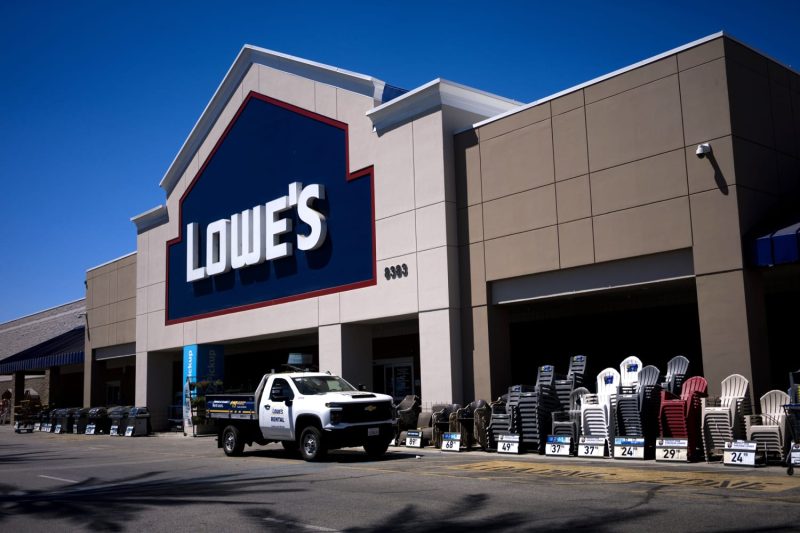Lowes Becomes Latest Company to Dial Back DEI Efforts Aimed at LGBTQ Groups
In a surprising move that has raised eyebrows across the corporate world, Home Improvement giant Lowe’s has become the latest company to scale back its Diversity, Equity, and Inclusion (DEI) efforts aimed at LGBTQ groups. This decision comes as a sharp departure from the trend of companies increasing their focus on promoting diversity and inclusion in the workplace.
Lowe’s had originally been applauded for its proactive stance on DEI initiatives, which included sponsorships of LGBTQ events, partnerships with advocacy organizations, and making public statements in support of the LGBTQ community. The company had also implemented internal policies to ensure fair treatment and representation of LGBTQ employees within the organization.
However, in a recent communication to employees, Lowe’s announced a shift in its DEI strategy, indicating that it would be scaling back its support for LGBTQ-focused initiatives. The move has sparked concerns among LGBTQ employees and external advocates who fear that the company’s commitment to diversity and inclusion may be diminishing.
This decision by Lowe’s is particularly perplexing in light of the increasing social awareness and emphasis on DEI in the corporate world. Many companies have recognized the value of fostering a diverse and inclusive workplace, not only as a moral imperative but also as a strategic business advantage. Studies have shown that diverse teams are more innovative and productive, leading to better business outcomes.
By dialing back its support for LGBTQ groups, Lowe’s risks alienating a significant portion of its workforce and customer base. In today’s highly competitive business environment, maintaining a diverse and inclusive workplace is not just a matter of moral responsibility but also essential for long-term success.
The backlash against Lowe’s decision highlights the growing importance of DEI in corporate culture. Companies that fail to prioritize diversity and inclusion risk facing negative publicity, employee morale issues, and potential financial repercussions. In contrast, organizations that embrace DEI and actively support marginalized groups stand to benefit from a more engaged workforce, improved reputation, and enhanced innovation.
It remains to be seen how Lowe’s will navigate the fallout from its decision to scale back DEI efforts aimed at LGBTQ groups. Whether the company will reconsider its stance in response to internal and external pressures or continue down this path, the case of Lowe’s serves as a cautionary tale for other companies considering similar moves. In a world where diversity and inclusion are increasingly valued and expected, organizations must carefully consider the implications of their DEI strategies to ensure a positive impact on their workforce, customers, and bottom line.
